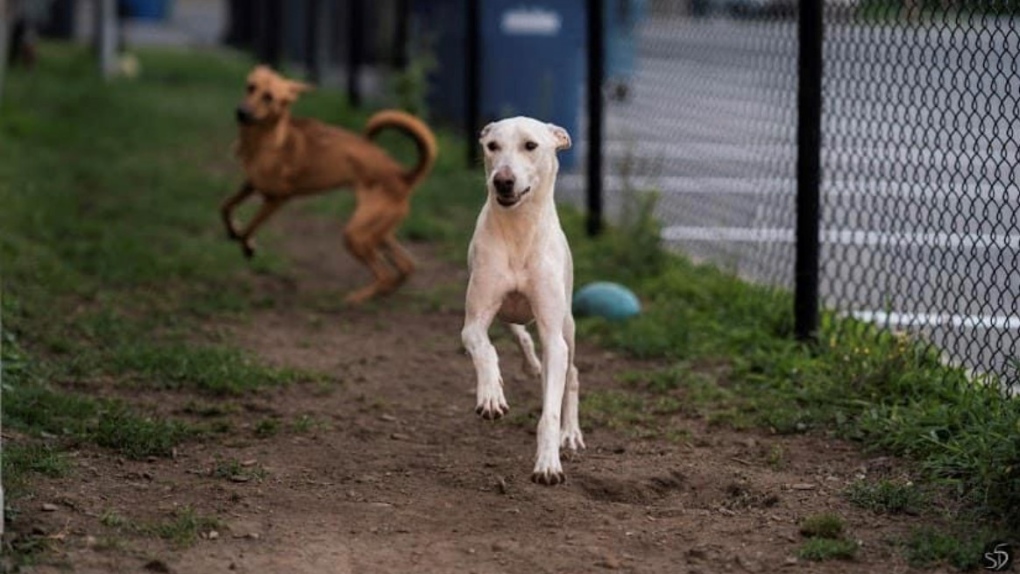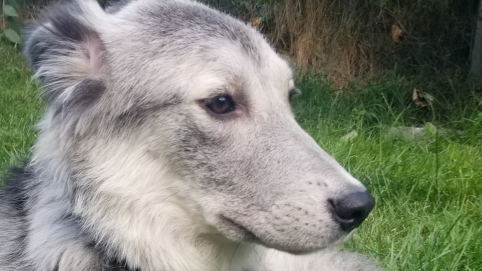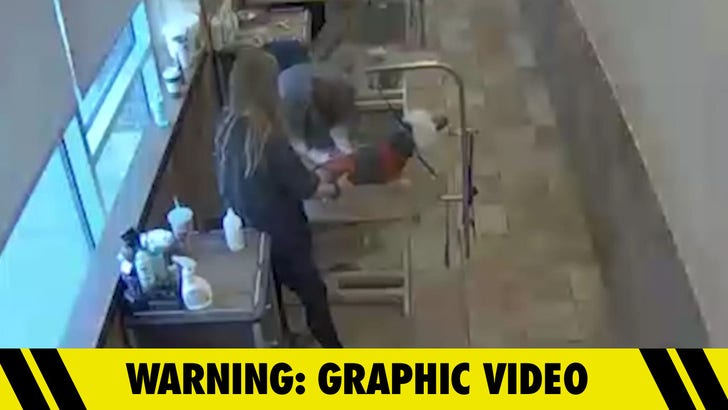Quebec pet rescues condemn Canada’s upcoming ban on international canine from over 100 international locations
Table of Contents
Quebec canine rescue Refuge Magoo is accustomed to bringing in canine from abroad, however not fairly at this tempo.
“Proper now we’ve about 40 canine, might be 45,” stated employees coordinator Valerie Tetreault, talking to CTV Information in late August. “We simply had 11 come on this week.”
The aim is to herald as many international canine as doable earlier than Canada’s ban kicks in on the finish of the month.
As of Sept. 28, Canada will prohibit the import of canine from over 100 international locations spanning components of Africa, Asia, South America, the Caribbean, the Center East and Jap Europe.
The rationale? To stop the unfold of canine rabies.
The measure, introduced by the Canadian Meals Inspection Company (CFIA) in June, was developed after two contaminated canine have been imported into the nation from Iran in 2021.
A unique pressure from that present in wild animals equivalent to raccoons, bats, skunks and foxes, canine rabies is a viral illness that assaults the nervous system.
The CFIA notes that, though there are at present no confirmed circumstances of canine rabies in Canada, the fatality charge for contaminated people is over 99 per cent if remedy arrives too late.
“The importation of even one rabid canine may lead to transmission to people, pets, and wildlife. If an individual is uncovered, they should endure critical remedy,” reads a CFIA assertion despatched to CTV Information.
However advocates say the rule is simply too excessive and will have devastating penalties for canine and rescuers alike.
RESCUES AT RISK?
For Refuge Magoo, primarily based out of Vaudreuil-Dorion, the import of international pups is essential.
About 90 per cent of the rescue’s canine come from different international locations. Of these, roughly half are from Mexico (exempt from the ban), whereas the opposite half come from Kuwait (thought-about “excessive threat” for canine rabies, i.e. not exempt).
“Most rescues will not survive with out these import canine,” Tetreault stated.
“We’ll take a [local] give up with no query,” Tetrault defined. “However we don’t see canine roaming the streets [in Canada], drained, injured, hungry, ravenous, on the verge of demise.”
By bringing in animals from international locations the place road canine on this situation are widespread, rescues can present choices for Quebecers serious about adopting their canine companion as a substitute of buying one, Tetrault defined.
“There’s such a excessive demand for these adoption canine,” she added. “[If] we’re not bringing them in and there is a scarcity of adoptable canine. The place do we expect individuals are gonna go?”
The reply, she fears, is the pet mill.
“These canine are mistreated, abused. We do not need that trade to flourish. We wish to save the canine that we are able to already.”
 Livvy (left) and Milo (proper) have been introduced into Quebec from Kuwait. (sd5photography / Shawn Dos Santos)
Livvy (left) and Milo (proper) have been introduced into Quebec from Kuwait. (sd5photography / Shawn Dos Santos)‘THEY DON’T HAVE A CHANCE’
However not all rescuers agree with this evaluation.
Sophie Fournier is the girl behind Sophie’s Canine Adoption, a small-scale adoption operation close to Montreal.
She argues that native canine surrenders are a serious challenge; even when some international canine are off limits, there are sufficient deserted pups in Quebec to go round.
Nonetheless, Fournier is firmly towards the ban.
“I believe that is a really dangerous thought, the way in which they are going about it,” she stated.
Though lots of Fournier’s canine are domestically sourced, a connection in Lebanon — a rustic thought-about “excessive threat for canine rabies” by the CFIA — ceaselessly ships canine her method.
If these canine cannot make it out of Lebanon, stated Fournier, “they do not have an opportunity.”
She stated abroad rescues accustomed to collaborating with Canadian adoption teams are actually scrambling to seek out these canine a house, lots of whom are in tough form after years of residing on the streets.
“It is freaking all people out […] Everyone seems to be speeding to ship canine,” she stated.
She fears the urgency will result in slicing corners, which comes with security dangers — the very dangers the CFIA is making an attempt to mitigate.
“It is turning into a complete mess. I discover it is turning into chaotic.”
 Windy was introduced into Quebec from Beirut, Lebanon. (Sophie’s Canine Adoption)
Windy was introduced into Quebec from Beirut, Lebanon. (Sophie’s Canine Adoption)EXPLORING ALTERNATIVES
Each Refuge Magoo and Sophie’s Canine Adoption have a radical vetting course of in relation to international canine.
“With vaccines and coverings and acceptable care, rabies is preventable,” Tetrault stated.
Earlier than their canine enter Canada, the organizations acquire a vet-signed well being certificates, together with proof of rabies vaccination, as required by federal legislation.
Their canine are additionally spayed, neutered and microchipped earlier than flying to their new dwelling.
Fournier says an in depth eye is stored on the canine as soon as they’re introduced in.
“If I see something flawed with their well being then I’ll take them to the vet,” she defined.
With these precautions in thoughts, the rescuers query why a ban is critical and say different options needs to be explored first, equivalent to a compulsory quarantine interval.
“Might they’ve achieved issues in a different way? And put possibly tighter restraints for folks from rescues bringing in canine? Completely,” Tetrault stated.
However the CFIA says vaccines aren’t at all times efficient.
“The rabies vaccine is unlikely to be protecting whether it is administered after an animal has already been contaminated. As a result of rabies can have an extended incubation interval, a canine could also be unknowingly imported with the illness, even when it was vaccinated previous to importation,” its assertion reads.
The danger is simply too excessive, it argues, and a ban is the one possibility.
“The CFIA has developed an strategy that’s related and proportionate to the present public well being dangers to animals and folks, and takes under consideration facets such because the CFIA’s regulatory framework and infrastructure, together with quarantine services at factors of entry.”
However rescues are pleading for an opportunity to strive one thing totally different.
“Watch us all rise to the event,” Tetrault implored. “[We] don’t have any challenge with going the additional steps to make sure all people’s security.”



